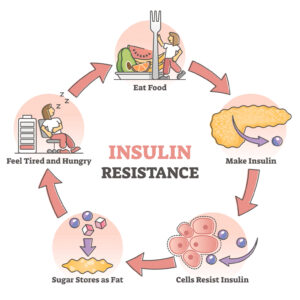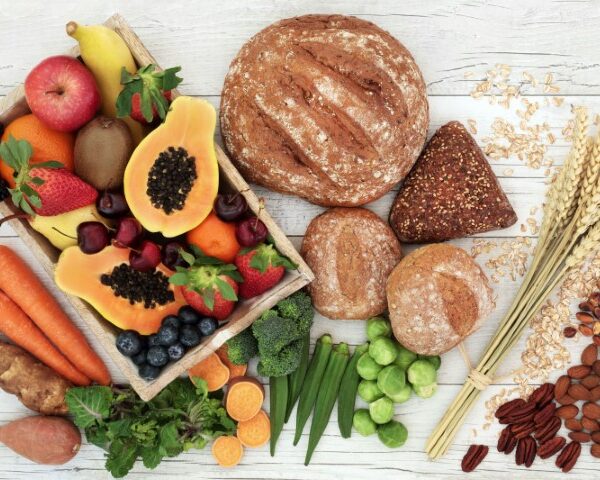As a holistic practitioner, I often work with clients who are struggling with issues related to insulin and glucose. These two substances play a vital role in the body’s ability to regulate energy levels and maintain overall health. In this article, I will provide an overview of what insulin and glucose are, how they work in the body, and how lifestyle factors can impact their functioning.
What is Insulin?

Insulin is a hormone that is produced by the pancreas, which is an organ located in the abdomen. Its primary role is to regulate the levels of glucose (sugar) in the blood. When we eat, the carbohydrates in our food are broken down into glucose, which is then absorbed into the bloodstream. Insulin is released by the pancreas in response to the presence of glucose in the blood.
Insulin acts as a key that unlocks cells in the body to allow glucose to enter and be used as energy or stored for later use. Insulin also helps to regulate the storage of fat and protein in the body.
What is Glucose?
Glucose is a type of sugar that is a vital source of energy for the body’s cells. It is considered a primary fuel for the brain, nervous system, and muscles. Glucose comes from the food we eat, particularly carbohydrates, such as bread, pasta, rice, fruits, and vegetables.
Another form of energy the body uses is ketones. I’ll talk about those in another article.

When we eat carbohydrates, they are broken down into glucose, which enters the bloodstream. The pancreas then releases insulin to help regulate the amount of glucose in the blood. Insulin signals the body’s cells to take in glucose from the bloodstream to use as energy or to store for later use.
However, f the body is in a toxic overload situation, such as from, pathogens (parasites, virus, bacteria, fungus), molds, toxic chemicals, or heavy metals, these can prevent the signal from telling insulin to stop fat storage. This can be a huge driver for blocking the body’s ability to lose weight.
Insulin Resistance

Insulin resistance is a condition in which the body’s cells become less responsive to the hormone insulin. This means that the cells do not take up glucose from the bloodstream as efficiently as they should, which leads to higher than normal blood sugar levels.
Insulin resistance can develop over time due to a combination of genetic and lifestyle factors, including sedentary lifestyle, poor diet, obesity, sleep deprivation, and genetics. Insulin resistance can lead to a range of health problems, including type 2 diabetes, metabolic syndrome, cardiovascular disease, and non-alcoholic fatty liver disease.
Lifestyle Changes for Healthy Insulin and Glucose Levels
Maintaining a healthy level of glucose in the blood is essential for overall health and well-being. A balanced diet that includes a variety of organic whole foods, regular physical activity, and stress management can all help support healthy glucose levels.

When it comes to insulin resistance, lifestyle changes such as regular exercise, a healthy diet, weight loss, and stress management can help improve insulin sensitivity and prevent or manage insulin resistance. In some cases, medication may also be necessary to control blood sugar levels but I believe this only further enables the unhealthy lifestyle behaviors to continue. Instead of improving lifestyle, some people may choose to use the medication as a crutch.
In conclusion, insulin and glucose play vital roles in the body’s ability to regulate energy levels and maintain overall health. Lifestyle factors such as diet, exercise, stress management, and sleep can impact the functioning of insulin and glucose in the body. As a holistic practitioner, I recommend a holistic approach to supporting healthy insulin and glucose levels, which includes addressing lifestyle factors and seeking medical care as necessary.



Leave a Comment